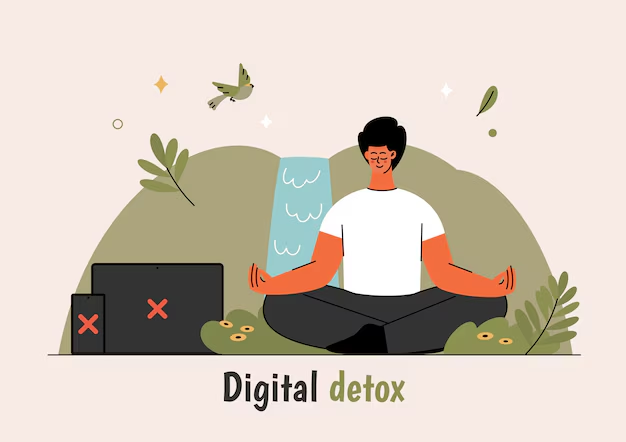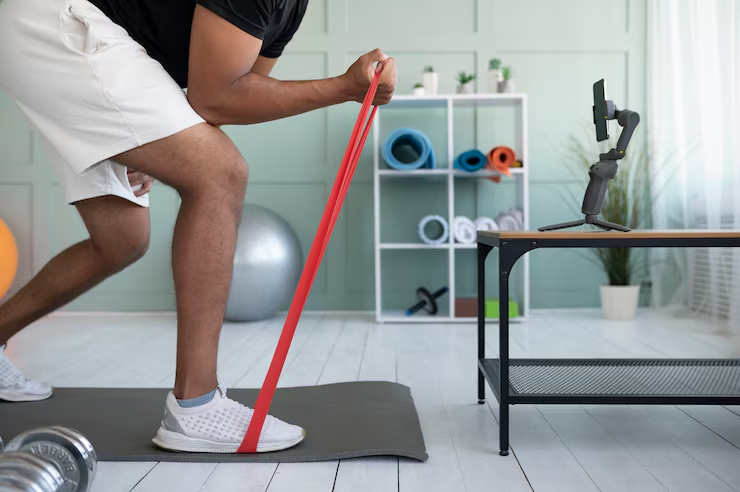Good health is the cornerstone of a meaningful, fulfilling life. It allows us to fully engage in relationships, excel at work, and pursue hobbies and passions with energy and joy. Without it, even the simplest pleasures can become difficult, and our overall quality of life suffers. That’s why prioritizing well-being is one of the most valuable investments we can make—and one of the most important good health tips to follow.
In today’s world, we’re surrounded by an overload of health advice—from diet trends to fitness fads—which can make the journey to wellness feel confusing and overwhelming. With so much conflicting information, it’s easy to feel unsure about where to begin. But one of the most practical good health tips is to focus on simplicity, not perfection.
Good health is built on small, consistent, and sustainable choices. Eating nourishing foods, staying active, getting enough rest, managing stress, and maintaining strong social connections are timeless good health tips that support lasting wellness. When these habits are practiced daily, they lay the foundation for a vibrant, balanced life—proving that progress, not perfection, leads to long-term success.
In this article, we explore the top 8 good health tips that are both effective and sustainable. Whether you’re starting your health journey or looking to refine your lifestyle, these tips offer a practical blueprint for lifelong vitality.
Top 8 Good Health Tips
Practice Time-Restricted Eating (TRE)

Time-Restricted Eating (TRE) is a form of intermittent fasting that emphasizes when you eat rather than what you eat. Instead of focusing on calorie counting or food restrictions, TRE encourages eating all meals within a specific time window—usually 8 to 10 hours—and fasting for the remaining 14 to 16 hours of the day. For instance, if you begin eating at 9 a.m., your last meal should be around 5 to 7 p.m. This eating pattern aligns more closely with your body’s natural circadian rhythm.
Unlike traditional diets, TRE is simple and sustainable for many people. One of the most practical good health tips for those starting TRE is to gradually shorten the eating window, allowing the body to adjust. TRE may help regulate blood sugar, support weight loss, improve metabolism, and reduce inflammation—all without needing to meticulously track every bite you eat.
TRE also supports better digestion, energy levels, and sleep quality by giving the body time to rest and repair during fasting hours. Among valuable good health tips, adopting an eating schedule that supports your body’s internal clock can enhance long-term wellness and make healthy living more achievable and natural.
Benefits
Supports weight loss by reducing unnecessary snacking and late-night eating.
Improves insulin sensitivity, which helps regulate blood sugar levels.
Enhances digestion and metabolism, as the digestive system gets time to rest.
Reduces inflammation and oxidative stress markers in the body.
May improve heart health and lower cholesterol levels over time.
Optimize Your Gut Health with Fermented Foods
Gut health is increasingly recognized as a foundation of overall well-being. The gut microbiome—a vast community of trillions of bacteria living in your digestive tract—plays a major role in digestion, immune function, mental health, and even weight management. One of the most important good health tips is to support your gut by maintaining a diverse and balanced microbiome through diet and lifestyle.
Consuming fermented foods such as yogurt, kimchi, sauerkraut, kefir, and kombucha is a simple way to introduce beneficial bacteria, known as probiotics, into your gut. These healthy microbes can help improve digestion, reduce inflammation, and strengthen immunity. A practical good health tip is to include at least one probiotic-rich food in your daily diet to promote gut health naturally.
Equally important are prebiotics—fibers that serve as food for your good gut bacteria. Foods like garlic, onions, bananas, and oats nourish these microbes and support a thriving microbiome. One of the best good health tips for long-term wellness is to eat a variety of plant-based, fiber-rich foods. Supporting your gut health can lead to improvements in energy, mood, and overall health.
Benefits
Boosts immune function by maintaining a healthy microbial balance.
Improves digestion, reducing bloating, gas, and constipation.
Supports mental health, as gut bacteria influence neurotransmitters like serotonin.
May help manage weight by improving nutrient absorption and metabolism.
Reduces inflammation, which is linked to numerous chronic diseases.
Use Technology for Wellness

Modern technology has become a powerful ally in the pursuit of better health. Devices such as smartwatches, fitness trackers, and mobile apps offer real-time insights into your daily habits—tracking everything from steps and heart rate to sleep quality, stress, and nutrition. One of the most practical good health tips today is to use these tools to stay aware of your physical activity and overall well-being.
Apps like MyFitnessPal for nutrition, Headspace for meditation, Fitbit for activity tracking, and Apple Health for comprehensive health data allow users to set goals, monitor progress, and stay motivated. These digital platforms can help you build consistency by integrating wellness practices into your routine. A helpful good health tip is to start with one app or device and gradually explore more features as you grow comfortable.
The key is using technology as a supportive guide, not a source of pressure. By receiving real-time feedback, you become more mindful of your habits and more capable of making informed health choices. Among top good health tips, embracing smart tools can empower you to stay on track and reach your health goals with greater ease and accountability.
Benefits
Provides real-time feedback to help you stay on track.
Increases accountability for fitness and dietary goals.
Improves sleep tracking, helping you optimize rest.
Encourages consistent movement by reminding you to stand, walk, or breathe.
Motivates healthier habits through goal setting and gamification.
Prioritize Digital Detox for Mental Clarity
In today’s digital age, screen time has reached record highs due to constant use of smartphones, laptops, tablets, and TVs. While technology offers many conveniences, excessive screen exposure can lead to eye strain, poor posture, sleep issues, and increased stress. One of the most valuable good health tips is to take regular digital detoxes—intentional breaks from screens that help clear your mind and recharge your body.
Even short breaks, such as 30 to 60 minutes away from your phone daily, especially before bedtime, can significantly improve your mental and emotional well-being. These pauses allow your brain to rest, improve focus, and promote better sleep. A simple but effective good health tip is to avoid screens at least one hour before sleeping to support your natural sleep cycle.
Creating screen-free zones—like your bedroom, dining table, or during family time—helps establish healthy boundaries with technology. Scheduling a tech-free hour each day to read, walk, or meditate can be refreshing and grounding. Among modern good health tips, balancing screen time with offline activities is essential for reducing stress, boosting mood, and supporting a more mindful, present lifestyle.
Benefits
Reduces stress and anxiety caused by constant notifications and social comparison.
Improves sleep quality by limiting blue light exposure.
Boosts focus and productivity by reducing distractions.
Enhances relationships through more present and meaningful interactions.
Promotes mindfulness, helping you reconnect with yourself and the world around you.

Focus on Functional Movement Over Just Exercise
Traditional workouts often target specific muscles, but functional movement focuses on exercises that mirror real-life activities—like squatting, reaching, twisting, and lifting. These exercises train your body to move more efficiently in everyday situations, improving overall strength, coordination, and injury prevention. One of the most effective good health tips is to include functional training in your fitness routine to enhance how your body works as a whole.
Functional movement improves mobility, flexibility, and balance, which are crucial for maintaining independence and avoiding falls or strains as we age. Activities such as yoga, walking, lunges, and mobility drills are excellent examples that engage multiple muscle groups at once. A practical good health tip is to practice these movements regularly to build a strong, stable foundation for daily living.
You don’t need fancy equipment or a gym membership to benefit from functional training. Bodyweight exercises like squats, planks, and stretches can be done at home. Incorporating functional movement into your day supports long-term wellness and helps keep your body agile and pain-free. Among the best good health tips, staying active with purpose-driven movement is key to a healthier, more capable life.
Benefits
Improves real-life strength and mobility for daily tasks.
Reduces injury risk by strengthening stabilizing muscles and joints.
Supports posture and balance, especially important as you age.
Increases total-body coordination and movement efficiency.
Promotes long-term fitness sustainability, even without a gym.

Include More Plant-Based Meals Weekly
You don’t have to go fully vegetarian or vegan to enjoy the benefits of a plant-based diet. Simply increasing the number of meals made from vegetables, fruits, legumes, nuts, seeds, and whole grains can make a significant difference in your overall health. One of the most effective good health tips is to focus on adding more plant-based foods to your plate rather than cutting out animal products entirely.
A plant-forward approach can help reduce the risk of heart disease, diabetes, and obesity while providing essential nutrients, fiber, and antioxidants. You can start small with simple habits like participating in “Meatless Mondays” or preparing plant-based dinners a few times a week. Great protein sources include lentils, beans, tofu, tempeh, and quinoa. One of the easiest good health tips is to experiment with new vegetables and flavors to keep meals exciting and satisfying.
Transitioning toward a plant-rich diet doesn’t require perfection—it just takes small, consistent steps. Swapping meat for plant proteins now and then supports digestion, boosts energy, and contributes to long-term wellness. Among today’s best good health tips, choosing more plant-based meals is a delicious and sustainable way to support your body and the planet.
Benefits
Lowers cholesterol and blood pressure, promoting heart health.
Reduces risk of chronic diseases, including diabetes and certain cancers.
Improves digestion with high-fiber plant foods.
Supports healthy weight management through lower calorie density.
Helps the environment by reducing your carbon footprint.
Improve Sleep Hygiene with Natural Light Exposure
Sleep hygiene refers to the daily habits and behaviors that support restful, high-quality sleep. One often overlooked yet powerful method to improve sleep hygiene is getting exposure to natural sunlight in the morning. Morning light signals your brain to stop producing melatonin—the hormone that makes you sleepy—and start producing serotonin, which boosts mood and energy. Among the most effective good health tips, regulating your body’s internal clock through sunlight is simple and free.
Spending just 15–30 minutes outside each morning can help align your circadian rhythm, making it easier to fall asleep at night and wake up feeling refreshed. Whether you go for a walk, stretch on the balcony, or sit by a sunny window, morning light exposure acts as a natural reset button for your sleep-wake cycle. A practical good health tip is to pair this time with light activity to further stimulate your body and mind.
Consistent exposure to early light can improve sleep quality, reduce insomnia, and even support mental health. As part of your daily routine, incorporating this tip into your lifestyle can enhance your overall wellness. Among highly recommended good health tips, morning sunlight is one of the easiest and most impactful.
Benefits
Promotes deeper, more restful sleep at night.
Enhances daytime energy levels and focus.
Improves mood and mental health by increasing serotonin.
Helps regulate hormones, including melatonin and cortisol.
Reduces reliance on artificial stimulants and sleep aids.

Practice Breathwork for Daily Stress Relief
Breathwork is a powerful practice that involves intentional control of your breathing to improve physical, mental, and emotional well-being. It includes techniques such as box breathing, 4-7-8 breathing, and alternate nostril breathing—all designed to calm the nervous system and enhance focus. One of the simplest yet most effective good health tips is to incorporate breathwork into your daily routine for better stress management.
These breathing exercises can quickly reduce anxiety, lower blood pressure, and promote a sense of calm. In addition, regular breathwork improves lung function and oxygen flow, which supports better energy and overall health. A valuable good health tip is to use breathwork before stressful events, during breaks at work, or as part of your bedtime routine to improve sleep.
You don’t need a lot of time—just a few focused minutes each day can yield noticeable benefits. Whether you’re sitting at your desk or lying in bed, breathwork is accessible anytime and anywhere. Among practical good health tips, developing a breathwork habit is a free, natural, and effective way to support both body and mind.
Benefits
Lowers stress and anxiety by calming the nervous system.
Improves oxygen flow, enhancing energy and brain function.
Reduces blood pressure and heart rate.
Improves emotional control and mindfulness.
Boosts mental clarity and resilience in daily challenges.

Conclusion
Good health isn’t the result of one big change or a strict set of rules—it’s built through small, daily choices that support your overall well-being. Each decision you make, no matter how simple, contributes to your health. Choosing a nutritious meal over fast food, taking a short walk, or going to bed on time might seem minor, but these habits add up over time. One of the best good health tips is to focus on consistency rather than perfection.
It’s important to remember that you don’t need to overhaul your life overnight. Start with small, manageable changes that fit your routine. Some practical good health tips include drinking more water, adding more fruits and vegetables to your meals, moving your body daily, and limiting screen time before bed. These steps may seem small, but they create powerful momentum toward a healthier lifestyle.
Health is not a final destination—it’s a continuous journey that evolves with your needs. Another essential good health tip is to listen to your body and make adjustments as needed. By staying consistent and intentional, you’ll build lasting habits that lead to better energy, improved mood, and long-term well-being.
FAQs
- What are some simple good health tips for beginners ?
Answer: If you’re just starting out, some simple good health tips include drinking more water, eating more fruits and vegetables, getting 7–8 hours of sleep, walking daily, and reducing processed foods. Start small, stay consistent, and gradually build healthier habits. - How can I apply good health tips to a busy lifestyle ?
Answer: Applying good health tips when you’re busy is all about planning and prioritizing. Prep healthy meals in advance, schedule short workouts (even 10 minutes count), stay hydrated, and take short mental breaks throughout the day to reduce stress. - Are good health tips the same for all age groups ?
Answer: While many good health tips—like staying active, eating well, and getting enough sleep—are universal, age-specific needs differ. For example, older adults may need more calcium and balance exercises, while children need more sleep and physical activity. - Can following good health tips prevent chronic diseases ?
Answer: Yes, consistently following good health tips such as regular exercise, a balanced diet, avoiding smoking, managing stress, and getting preventive checkups can significantly lower your risk of chronic diseases like heart disease, diabetes, and hypertension. - Where can I find reliable good health tips ?
Answer: Reliable good health tips can be found from reputable sources like government health websites (e.g., CDC, WHO), certified nutritionists, licensed healthcare professionals, and evidence-based health blogs. Always cross-check with a trusted medical provider before making major lifestyle changes.

